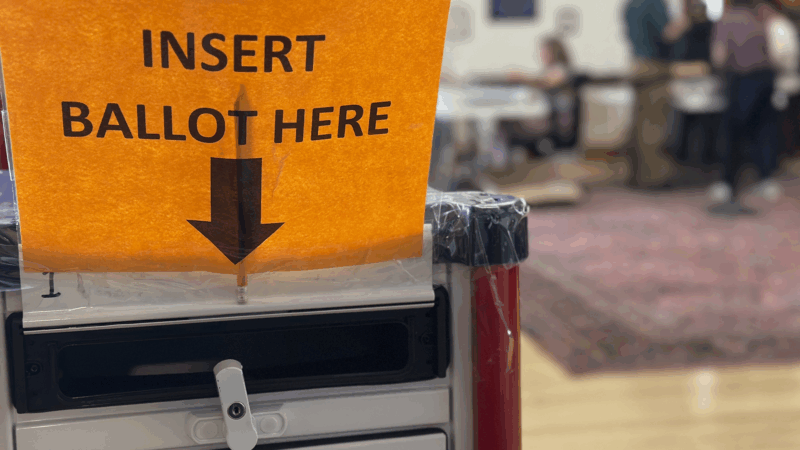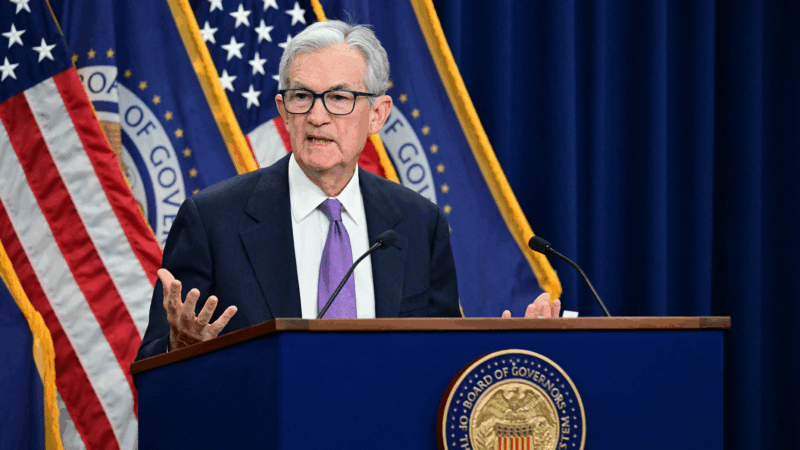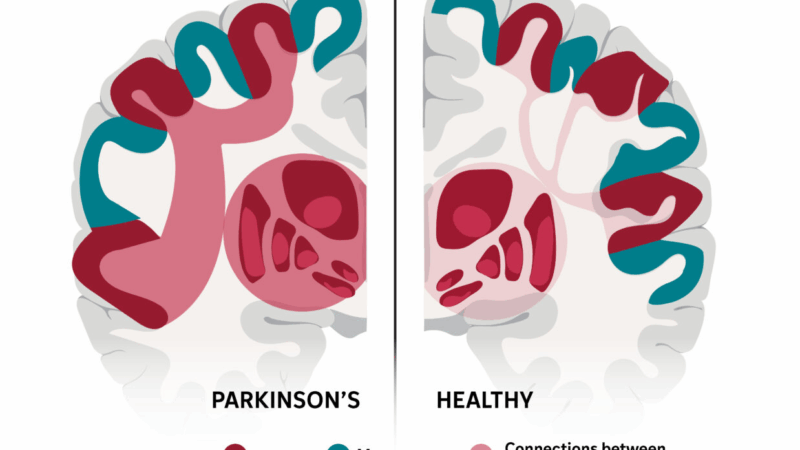DHS to states: Follow our voting rules or lose out on election security money
The Trump administration has indicated it may withhold tens of millions of dollars in election security funding if states don’t comply with its voting policy goals.
The money comes from a Department of Homeland Security (DHS) grant program, and voting officials say new requirements from the administration will make the money inaccessible for most of the country.
NPR is the first news outlet to report on the changes.
About $28 million — or 3% of the overall Homeland Security Grant Program — is devoted to election security and now at risk, though some officials and experts worry that the new requirements could also endanger hundreds of millions of dollars in other grants for law enforcement.
Voting officials say the amount of money at risk won’t make or break the country’s election security. But the potential withholding of funds over policy differences — combined with other recent election security cuts — has many wondering whether the Trump administration is prioritizing election security the way it claims it is.
“Despite the rhetoric, there’s been [a] serious cutback to election security support that is being offered to the states,” said Larry Norden, an elections expert at the Brennan Center for Justice, which is broadly critical of President Trump’s policies. “And this is going to be one more cut for a lot of states because most states are not going to allow the president to decide [how their elections work].”
The grant money in question is administered within DHS by the Federal Emergency Management Agency, or FEMA, and is meant to help state and local governments prepare for and prevent terrorism and disasters. For some of the grants, DHS designates priority areas to further target what the money is spent on, and three years ago the agency began designating election security as one of those priorities.
This year, however, Trump directed DHS to adjust the election security portion of the grants as part of his March 25 executive order on voting (much of which has been paused by courts).
The new grant rules were released publicly in late July, and multiple election officials told NPR they saw them similarly to that executive order: as a way for the administration to try to force their hands when it comes to policy.
“The Department of Homeland Security is trying to back-door changes to our election laws,” said Maine Secretary of State Shenna Bellows, a Democrat. “That is unacceptable.”
The grant applications closed earlier this month, and Maine is forgoing roughly $130,000 in election security grant money because the state does not plan to comply with the new requirements, Bellows said.
Another state election official, who spoke to NPR anonymously because they did not have permission to speak publicly, said their state was also forgoing the money. They estimated only a handful of election offices were working with their state emergency management departments to craft the grant applications in line with the new election requirements and therefore would potentially access that money.
The new requirements
It’s also unclear exactly how DHS will judge whether states meet the new demands.
One of the requirements, for instance, is that jurisdictions applying for money must “prioritize compliance” with federal guidelines for voting system certification that are so new they have not yet been incorporated anywhere in the country.
FEMA, which manages the grants, did not respond to NPR’s questions about the new grant rules, including about how such a provision would be adjudicated considering that no state is currently using election equipment certified to the new standards. DHS also did not immediately respond to NPR’s request for comment.
Another new requirement is that jurisdictions applying for election security money must use a new DHS citizenship verification tool for all people working at a polling place in “any capacity.”
That tool, known as the SAVE system, was expanded rapidly by DHS this year, and the agency has not disclosed anything publicly about the accuracy or reliability of the information provided by the system, or about how personal data run through the system will be secured.
It’s unclear if the system has ever been used to verify election workers before, considering the functionality that allows the system to search for U.S.-born citizens was only added in the past few months.
“DHS can’t require us to use that system,” said Bellows.
Concerns about other law enforcement grants
NPR has previously reported that in previous years some of the grant program’s money designated for election security has not actually gone to reinforcing state voting infrastructure.
That election security portion of the grants represents a small percentage of the overall billion-dollar DHS grant program, but Norden of the Brennan Center is concerned the rest of the grant money could also be withheld if states don’t comply with the elections rules.
In the section of the new election requirements, there is a line that says an applying jurisdiction must “demonstrate proof of compliance before accessing the full” award. Norden called the line unclear and alarming.
“You are talking about a billion dollars for state and local law enforcement to protect Americans from terrorism,” Norden said. “The idea that that money … could be in any way held up is alarming for anybody who cares about the safety and security of citizens.”
At the end of the new election grant requirements, there was one more change from the 2024 rules. Language that explicitly banned using grant money for activities that “could be used to suppress voter registration or turnout” was removed.
Judge rules 7-foot center Charles Bediako is no longer eligible to play for Alabama
Bediako was playing under a temporary restraining order that allowed the former NBA G League player to join Alabama in the middle of the season despite questions regarding his collegiate eligibility.
American Ben Ogden wins silver, breaking 50 year medal drought for U.S. men’s cross-country skiing
Ben Ogden of Vermont skied powerfully, finishing just behind Johannes Hoesflot Klaebo of Norway. It was the first Olympic medal for a U.S. men's cross-country skier since 1976.
An ape, a tea party — and the ability to imagine
The ability to imagine — to play pretend — has long been thought to be unique to humans. A new study suggests one of our closest living relatives can do it too.
How much power does the Fed chair really have?
On paper, the Fed chair is just one vote among many. In practice, the job carries far more influence. We analyze what gives the Fed chair power.
This complex brain network may explain many of Parkinson’s stranger symptoms
Parkinson's disease appears to disrupt a brain network involved in everything from movement to memory.
‘Please inform your friends’: The quest to make weather warnings universal
People in poor countries often get little or no warning about floods, storms and other deadly weather. Local efforts are changing that, and saving lives.








